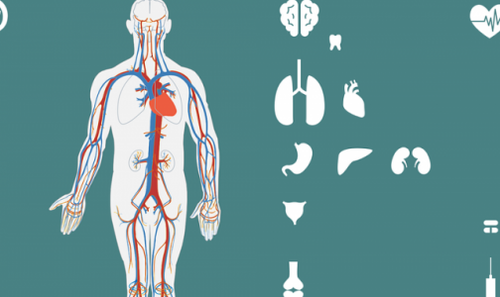The potential of the human body is enormous, and the desire and will to live sometimes work wonders, chasing a person to overcome the most terrible ailments. None of the people can know in advance what tests may await him on the path of life and with which organ he may have to part with in order to save his own life. And modern medicine has learned to work miracles by saving and pulling people from the other world by the hands of experienced surgeons and thanks to their professional skills.
In ancient times, this could be called blasphemy and black magic, but today it is known that a person can continue to exist without certain organs and their functions are partially taken over by the remaining ones, supporting the vital activity of the organism.

After the loss of which organs can a person continue to live?
Spleen
Most often, people have to part with the spleen after various accidents and abdominal injuries, when the spleen ruptures, and the capsule of connective tissue surrounding the spleen causes abdominal bleeding, which begins to threaten life. Without the intervention of a surgeon, the outcome can be tragic, but I am sure that you personally know several people who live without a spleen and look quite healthy to themselves.
After the spleen is removed, the liver and lymphatic system take over some of its functions.
Stomach
We all know from childhood that our stomach is responsible for digesting the food we eat. Our stomach is also responsible for absorption and secretion, but injuries or cancer can disrupt the usual course of things and the surgeon makes a difficult decision to remove the organ. In this case, the surgeon connects the esophagus to the small intestine. After recovery, the patient can eat the usual meals, supplementing his diet with vitamins and dietary food.
Reproductive organs
As for the reproductive organs, these are parts of the body that are responsible only for the reproductive function and therefore women without ovaries, just like men without testicles, can lead an absolutely full life, albeit without the possibility of further procreation. Most often, one of these paired organs is forced to be removed due to oncology or, less often, injury. Surprisingly, it is believed that after such an operation, the life expectancy of such a person may even increase.
Colon
The human large intestine is a rather large organ because its length is about one and a half meters, and its main function is the absorption of water and some trace elements.
Bowel removal is mainly caused by cancer or some other bowel disease.
To lose a large intestine only at first glance seems to be a shocking situation, and later most patients are safely rehabilitated and continue their lives in a new status.
Gall bladder
Removal of the gallbladder is a fairly common situation for many people, because many people know that as a result of irregular and improper nutrition in the gallbladder, stagnation of bile occurs, and over time, excess cholesterol in the bile can lead to the formation of stones and the need for further surgery. The operation to remove the gallbladder - cholecystectomy, is one of the most frequent and widespread in the world.
Naturally, after removing the bile, the functional load on the liver increases, but this price is quite appropriate for a life without pain.
Appendix
For a long time, there have been discussions about the purpose of the appendix in the human body, but now scientists have agreed that the appendix is a repository of bacteria for
bowel work.
The well-known appendicitis is an inflammation of the appendix, which leads to its removal.
From the positive, after the removal of the appendix, the patient's usual way of life does not change in any way.
Kidney
The kidneys in the body are a kind of "sieve" that filters blood and removes excess substances with urine.
Due to the fact that the kidneys are a paired organ, a person has the opportunity to live with one kidney, and with regular dialysis without both.
Removal of the kidney is caused by alcohol or drug damage, as well as other infectious or chronic diseases.
It is difficult to talk about the quality of life of a patient living on dialysis, but statistically a 20-year-old patient is able to live on diathesis for 16-18 years, and a 60-year-old patient for 5 years.
Interesting facts about our bodies include the ability to recover from the loss of 3.5 trillion red blood cells. That is how many red blood cells a person loses when losing half a liter of blood.
Be healthy, take care and love your organs, which only in a full-fledged tandem can be as strong as possible and remember the hidden forces of your body and its colossal ability to survive.
Comments